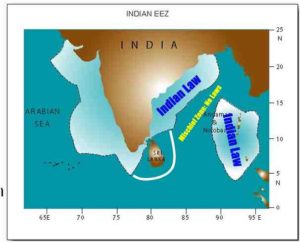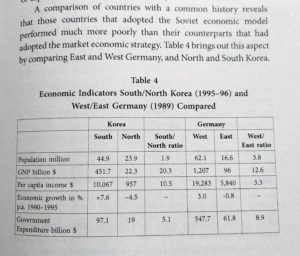BOAT LIFE: A Day in the Life and 5 Naked truths about of Pescatarian Diet
FISH, BOATING AND NAKED
5 Reasons to Become a Pescetarian
You may be wondering, “What is a pescetarian?” Pescetarianism, or pesco-vegetarianism, means being vegetarian while still including seafood in your diet. One still cuts out red meat, pork, poultry, etc. from his or her diet like a vegetarian, but does not cut out fish and other seafood.
One of the biggest meat-lovers I ever met, my loving boyfriend Mick Merivel, has even adopted the pescetarian diet. He has been a pescetarian now for the past three months and has been pleasantly surprised at how easy it is — even though he had been eating meat regularly for the past 30 years. He says, “The switch to a pescetarianism diet was not hard for me at all, because the ability to continue to eat fish and seafood eliminated my desire for meat.”
Many people ask me “How did you do that? I could never give up meat!” What a lot of people don’t realize is that over time your body’s unnatural craving for mammal and poultry meat disappears, and a healthy body will get sick from beef, pork or chicken if eaten again after a period of a pescetarian diet. This is because land-animal flesh is filled with toxins, uric acid and fecal bacteria.
And frankly, I believe that the human body should always reject these meats, but we are feeding it to our toddlers and convincing them — as we have been convinced — that it is natural and normal. But consider this, do natural carnivores have to cook their meat in order to not get sick and season it so it can taste good to them? Would a human baby kill and eat raw a live chicken out of instinct as for example a baby lion would? No.
Here’s another thing to think about — can we eat raw fish and seafood if it’s healthy and clean and not get sick? Yes. Do we always have to season fish and seafood for it to taste good? No. Are there the same health risks from eating healthy, fresh fish as there are from eating land animals? No.
So I put together a list of the top five reasons why I believe you should go pescetarian. All I ask of you today is to try the 30 Day Challenge. All you do is take a pledge to cut out meat, excluding fish and seafood, from your diet for the next 30 days. With the increase of fresh fish and vegetables in your diet, I believe that you’ll feel healthier, experience less headaches and sickness as well as increased energy levels. In the long-term, you may also improve your weight, the health of your brain and heart, hair and even your skin.
According to The New York Times, meat consumption in the United States has doubled in the last 50 years. And since then, haven’t other problems increased? Cancer, heart disease, stroke, obesity: these have all increased drastically over the past 50 years. Any connection? These trends may go hand in hand.
1) Pescetarianism may drastically improve your health.
Continue reading “BOAT LIFE: A Day in the Life and 5 Naked truths about of Pescatarian Diet”
It Was Destiny All Along – IIM Visakhapatnam
After a hectic day attending management classes and interaction with seniors, I reached my hostel in Ghaziabad tired. The climate outside was orange with pollution and the air conditioner in the room was not working. There was little more “getting accustomed to” needed to happen. Just the thought that for every opportunity there would be 540 competitors was overwhelming. To get away from all this I was checking the blogs in search of open mics for comedy. Then came the mail that has possibly altered my life for good. It was the mail of admittance from IIM Visakhapatnam. My eyes were beaming with exuberance.
In the past destiny had played a role of a comic in my life. What else can explain the form filling mistakes that enroll you into a part time course in a college in Gurgaon. The waiting list to a top ranked institute gets halted when you are the number 2 in the list. When your best interview in Bombay results in straight rejection. After going through all of this, it felt as if the whole process was esoteric. But that mail had pacified the “sour grapes” feeling. I believe it was destiny all along. Visakhapatnam is called the city of destiny for a reason.
When I think about my stay in Visakhapatnam, I foresee great opportunity, a place with booming infrastructure and a Government keen in developing the city into the silicon valley of Andhra.

I, for one, have no doubt about the standard of the pedagogy of the institute even for a split second. It is not just because IIM Bangalore is being the mentor to the institute. It is because this is a new IIM and we as its students get to be part of its evolution curve and learn along with the institute. Our peers who have joined “older IIMs” do not get to be called the founding members of so and so club or initiative, but we do. Joining a new IIM is like having a clean slate. You as the writer have the chance to be the best alumni to grace the institute. I am part of NITT alumni and I am just a speck in the vast alumni network. But here there is a chance to be the front runner of the alumni network.
Finally, the stand-up comedy setup in Vizag is not so much ripe as its counterparts. There is a chance for me to nurture this field also. On the whole, I am happy that I chose not to be part of a herd and breathe two more years of relatively clean air.
Which ABG company would you want to work for and why?
Among the many successful companies under Aditya Birla Group I would like to work for Aditya Birla Fashion and Retail Limited (ABFRL). In this fast paced industry, innovation is the key to existence. Also, there is a requirement for a comprehensive mix of traditional and new-age communication. With ABFRL, a company that has the learnings and businesses of two renowned Indian fashion stalwarts like Madura Fashion & Lifestyle and Pantaloons Fashion and Retail, a creative approach to business is adopted. The most interesting point is that the wide range of brands under the company do not cannibalize on its fellow brands. I feel that with an addition of an adaptable person like me, the company would reap the best of its benefits.



